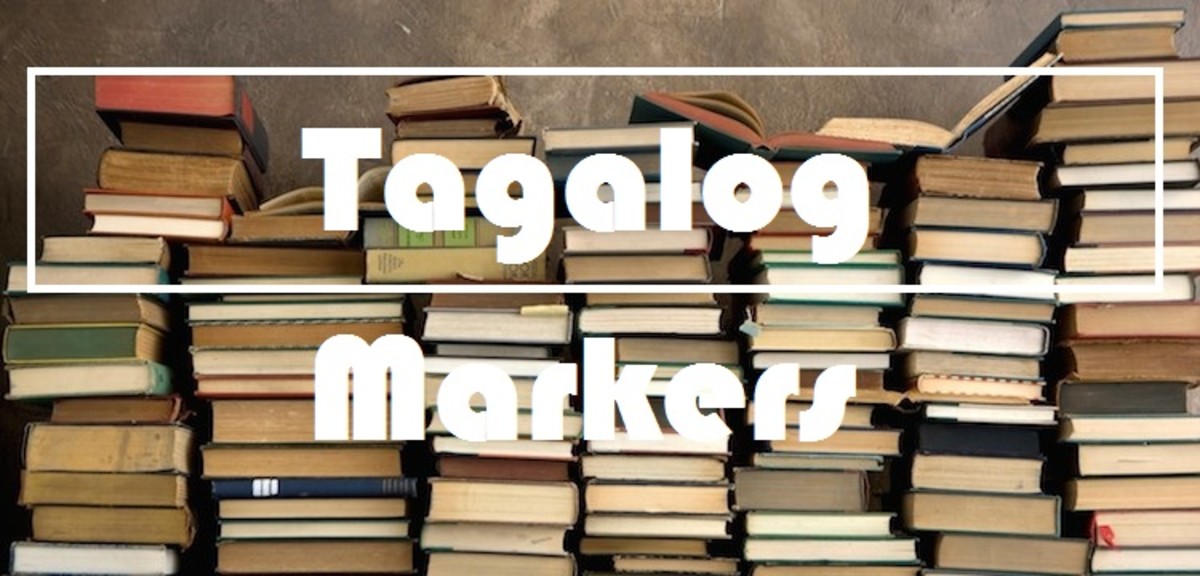Teaching yourself a language: learn from my experience
How did I come to be teaching myself Spanish?
It wasn't as if I made a deliberate choice to teach myself - I suspect that, like many people, I simply ended up doing so because I couldn't find a satisfactory alternative. I first learned some Spanish when I was just out of university too many years ago to admit to. I spent four months in Madrid having arrived there with not a single word of Spanish (so I began by looking up ‘yes’ and ‘no’ in the phrase book!) Many years later I started attending various adult education courses on an occasional basis but never really got to grips with the language systematically. The last time taught programme I followed was one with the UK's Open University www.open.ac.uk but, as the name indicates, this was actually a distance learning course. I did work my way through the coursework- after all I was paying and it wasn't cheap - so it certainly helped me to improve my grammar and vocabulary. However there were few opportunities to improve my spoken Spanish and I didn't like the fact that you were expected to do pieces of writing in Spanish without receiving any feedback on these.
Next I tried a local class run by the Adult Education Service – the only one available for those who had progressed beyond beginner or ‘near beginner stage’ - but felt that the standard of teaching was poor. The teacher was not helped by the fact that she had to cope with a wide range of levels of competence amongst her students and there was no possibility of what was offered being tailored to my individual needs. If I wanted a more professional approach I would need to travel to a nearby city and even then there would be no guarantee of a suitable course. If you sign up for an intensive, for example, two week language course abroad, or indeed here in the UK, this invariably starts off with an assessment of your level of proficiency in the language. It always surprises me that this doesn't seem to happen with longer courses here – perhaps because the range of courses to meet these levels simply isn’t available. A notable exception to this is the Instituto Cervantes (www.cervantes.es) which is funded by the Spanish government to promote and disseminate the language throughout the world. It does offer free assessments, in Manchester or London, for example, along with a range of courses for intermediate level and indeed advanced students.
I tested out some online courses but couldn’t get on with these for various reasons. For example, they tend to teach grammar by examples rather than explaining the rules in detail, which sometimes isn't enough for me. The answers to exercises are provided but if you get it wrong you won't necessarily know why you did so and unless you sign up for a course with assessment and tutor input you won't get feedback on your written work (as opposed to the correct answers for multiple choice questions, for example ).
Teaching myself Spanish
So having discarded a lot of methods that clearly do meet other people’s needs I tried to improve my Spanish by:
- spending a lot of time on language exchange websites and then Skype (www.skype.com) practising my spoken Spanish. I found out about these from one of my fellow students at the local class which I subsequently stopped attending – having decided I was learning more from my Spanish speaking partners!
- reading Spanish newspapers (for example, El País) www.elpais.com on the web and in hard copy when I was in Spain
- listening to Spanish podcasts when out on my daily walk. The main sources of these were RTVE (Radio Televisión Espanola) www.rtve.es and the BBC’s Spanish web-site and broadcasting arm www.bbc.co.uk/mundo
- initially writing e-mails in Spanish to language exchange partners but after the first few months of this I abandoned this in favour of just talking!
- buying and using the course books for the next level OU Spanish programme – without signing up to the taught and assessed component of this - and using the recommended grammar book reference as appropriate.
Incidentally, although my husband and I purchased a flat in northern Spain about two and a half years ago and I have spent a few weeks there every year since, this has not done much for my Spanish - I’ll explain why in another article!
How much progress did I make?
Well, given the number of hours that I have put into this project I’ve definitely not made as much progress as I would have liked. In fact I started off heading up this subsection: ‘Why did I do so badly?’ before deciding that this was perhaps being a little hard on myself. However:
- I’ve definitely made progress with my comprehension of the written language and can understand quite a lot of the quality Spanish papers – I would probably do even better if I tackled something a little less ambitious. My understanding of current affairs and news vocabulary is now quite extensive but in other ways my vocabulary is quite restricted and if I try to read a novel I'm really struggling
- my comprehension of spoken Spanish has improved dramatically - I can understand quite well what people say to me in Spanish on Skype even when they talk at normal speed and I can understand formal presentations e.g. the news being read in Spanish on BBC Mundo. (Their news readers speak more slowly than those on Spanish TV or radio because the former targets the whole of Spanish-speaking South America as well as Spain itself.) However if I have to listen to informal chat between two or three people especially when talking at once as Spaniards always do I find this very difficult. I’ve tried to listen to podcasts of chat shows that provide this sort of experience. One of the problems here is lack of exposure to colloquial idiomatic Spanish.
- I can talk about everyday things without too much difficulty; also I did furnish a new flat in Spain from scratch and have a new kitchen and bathroom installed – all in Spanish! However my grammar is far from perfect - I struggle to remember some of the endings in the past tense and I have major issues with some key points such as when to use the preterite ( for example, I did) and when to use the imperfect (in English the nearest equivalent is I was doing but of course it's not that's simple – it never is). I still lack the vocabulary to talk about, for example, feelings and experiences in more depth and detail.
- The aspect in which I have made least progress is the written language - which is not surprising really because it's the one I have spent least time on.
Why have I not done better?
- Failure to plan my learning. At no time did I sit down to identify what I wanted to achieve and how I was going to go about this before allocating time systematically to these tasks. This was, of course, in spite of of repeated advice in OU study guidance to do so. In particular I had failed to grasp until quite recently that writing in Spanish was for me a very important way of learning and remembering. So for example, I have difficulty reproducing a word I have heard if I haven't seen it written down. Only just sussing this is out is really quite remarkable for somebody who has worked in the field of professional training and talked on numerous occasions about learning styles and the importance of identifying how you as an individual learn!
- Being disorganised. After a conversation in Spanish I might well look words up in the dictionary, scribble them down on a bit of paper and then lose this. At one point I did have a proper notebook to record new words but never went back to re-read them! Sometimes I just looked up the English transation and convinced myself I would somehow be able to remember them without writing it down at all. I must have been thinking that I would absorb these words by a process of osmosis. It's true that I did remember some of them well enough to recall their meaning in English but not nearly well enough to actually translate from the English to the Spanish. I would do the same with any grammar issues that came up. I hate to think of the number of hours I wasted looking up the same word/issue on multiple occasions!
How can you do better?
- You do need to start with some sort of assessment of what your learning needs are and where you are lagging behind, for example, in the different modes of communication. Is it about expanding your vocabulary or is it about tackling more advanced grammar? Do you want to focus on speaking? Then I guess it's easier to decide what sort of learning will best enable you to achieve them - and it does come back to how you learn, for example unlike me can you absorb new vocabulary and reproduce it just by listening? You may find it useful to refer to another article here on hubpages - The Keys to Learning another Language: Involve all your Senses.
- Be realistic. A fairly recent study plan of mine includes: printing off and reading (not just for understanding but for studying grammar as well) four newspaper articles a week; doing some course work twice a week; watching at least one Spanish TV programme a week and listening to podcasts every day. Who was I kidding?
- This may sound obvious but if you can’t get on with your course or textbook find one that does suit you. I never got to grips with studying the OU ones on my own but wasted months deluding myself that I would if I had more time – I didn’t! At the moment a grammar book incorporating exercises (and answers) looks a better bet for me, for example, the Practice Makes Perfect collection available from Amazon.
- Can you find somebody to offer the sort of help that you would get from a teacher? For example, will your language exchange partner point out the major errors that you are making when you talk or correct some of your written work? They probably will if you have been talking over a period of months and have a good rapport – provided the arrangement is reciprocal.
- If you don’t know how to translate a phrase from English to Spanish or vice versa try one of the language forums, for example, the free online dictionary Word Reference www.wordreference.com has a users’ forum where you can post your translation queries.
- I've just discovered that Microsoft Word 2007 incorporates a spell and grammar check in a number of different languages. This option appears when you select Spanish as your language on the taskbar. This tool won’t do all your work for you but it does enable you to check, for example, that you’ve got adjectives agreeing with nouns (after you’ve tried to do this yourself first, of course)
- Finally, it’s really boring but you do need to aim for a disciplined approach – even if it’s an ideal you’re never going to achieve. One useful piece of advice from the Open University's 'The Language Learner's Good Study Guide' was that you should review after every session what it is that you have learnt, for example, by trying to recall the main words or points before writing them down and going back over this again at a later stage. Repetition, repetition, repetition seems to be the key to success. This is one bit of advice that I haven’t yet followed but I’m working on it!








